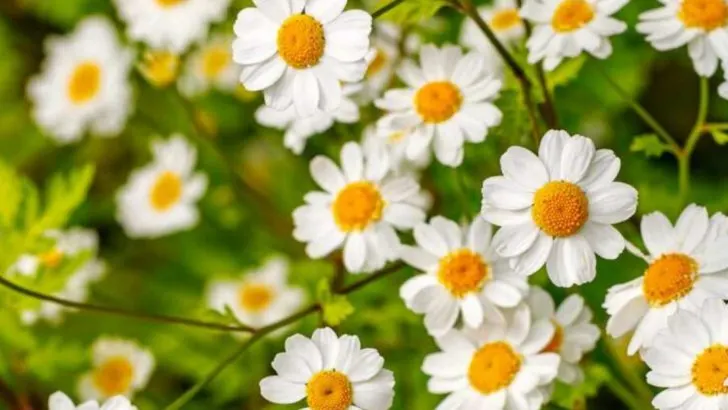Starting over in gardening can be a therapeutic journey, especially for those who have experienced loss. Engaging with nature through planting and nurturing can provide solace and healing. This post explores 22 plants that bring not only beauty but also emotional comfort to widowed gardeners. These plants symbolize resilience, hope, and renewal, offering a sense of purpose and connection to the world around. Embrace this list as a guide to creating a garden that heals the heart and enriches the spirit, fostering a new beginning through the power of nature.
Lavender
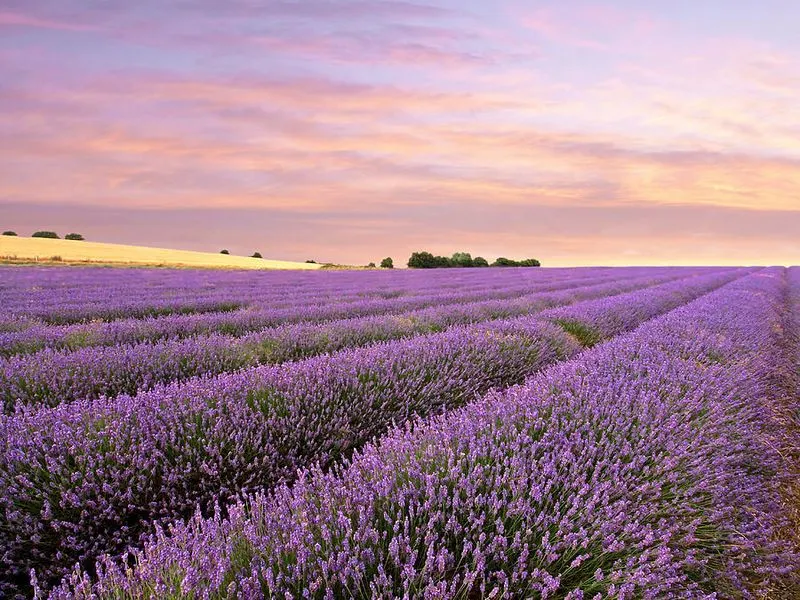
Lavender is cherished for its calming scent, known to ease anxiety and promote relaxation. Imagine strolling through a garden, the air filled with its soothing fragrance. The timeless beauty of lavender can transport you to a place of peace.
In ancient times, lavender was used in baths for its healing properties. Today, it continues to be a symbol of tranquility. Widowed gardeners may find solace in its gentle embrace, planting seeds of hope in their hearts.
Lavender not only beautifies the garden but also nurtures the soul, offering comfort and renewal.
Rosemary
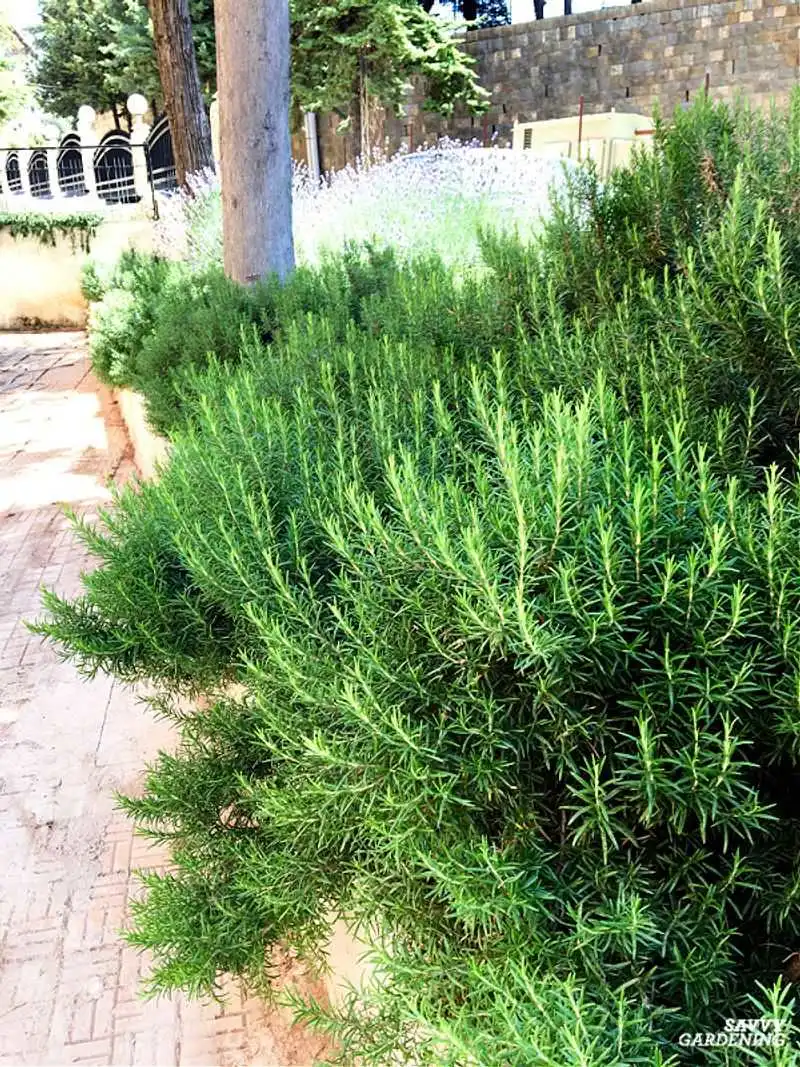
Often associated with remembrance, rosemary holds profound meaning for those grieving a loss. Its robust aroma evokes memories and strengthens connections to the past.
This resilient herb thrives with little care, making it a steadfast companion for widowed gardeners. Rosemary’s evergreen nature symbolizes enduring love and hope for the future.
Planting rosemary can become a ritual of remembrance, a way to honor the past while embracing the present. Its presence in the garden provides both flavor and emotional nourishment, creating a space for reflection and healing.
Chamomile
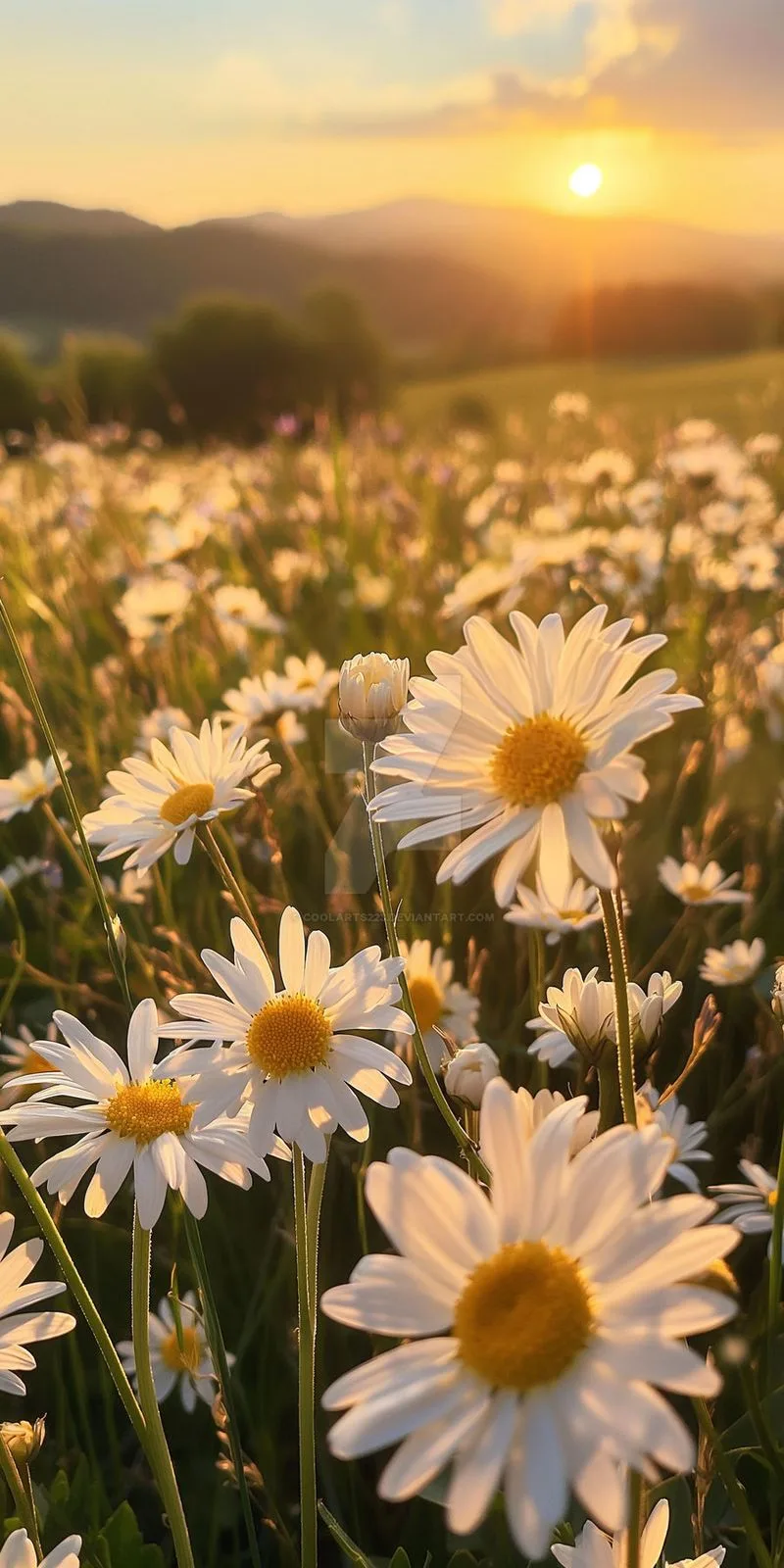
Chamomile’s delicate blooms offer more than just visual delight. Known for its calming effects, chamomile tea has long been a remedy for sleepless nights and anxiety.
Widowed gardeners may find comfort in its tender petals, reminiscent of shared moments and gentle embraces. The act of brewing chamomile tea from your garden can become a soothing ritual, promoting relaxation and healing.
Chamomile’s sunny disposition brightens the garden and the spirit, a reminder that beauty and peace can be found in the simplest of things.
Mint
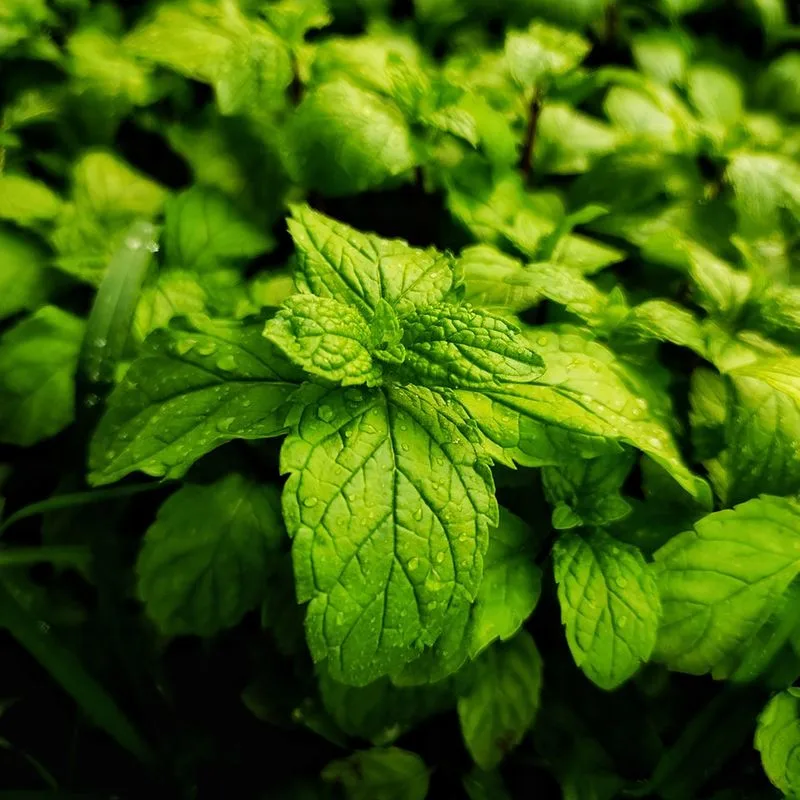
Mint’s invigorating aroma can uplift the spirit and refresh the mind. Its vibrant green leaves symbolize vitality and renewal, offering a burst of energy to those who tend to it.
For widowed gardeners, mint can be a metaphor for new beginnings. Its rapid growth and resilience reflect the strength found in embracing life’s changes.
In the kitchen, mint adds zest to dishes and drinks, infusing life with flavor and joy. Its presence in the garden serves as a daily reminder of life’s refreshing possibilities and the healing power of nature.
Sage
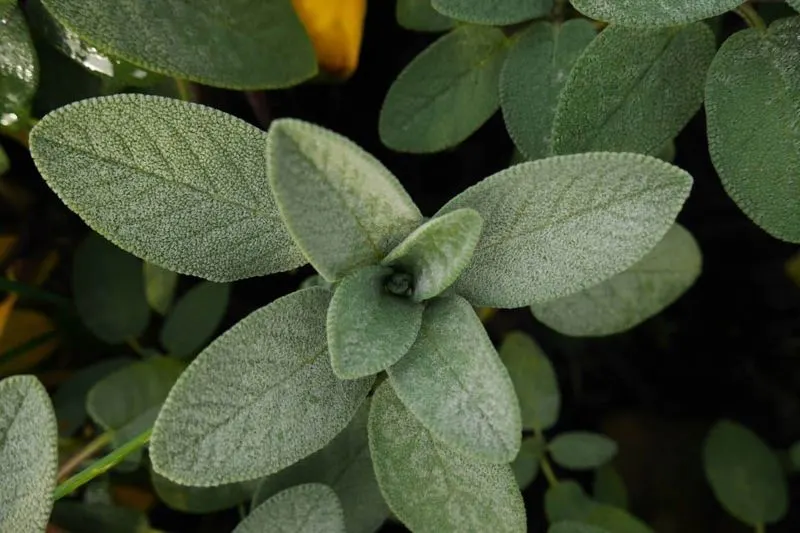
Sage is a plant steeped in tradition and healing. Its earthy aroma and silvery leaves have been used in rituals to cleanse and purify the spirit.
For those starting over, sage offers wisdom and clarity, guiding gardeners on their path to renewal. Its resilient nature reflects a strength that can inspire and comfort.
In the garden, sage’s muted beauty adds depth and character. It’s a reminder that growth often comes from within, and that healing is a journey worth undertaking.
Aloe Vera
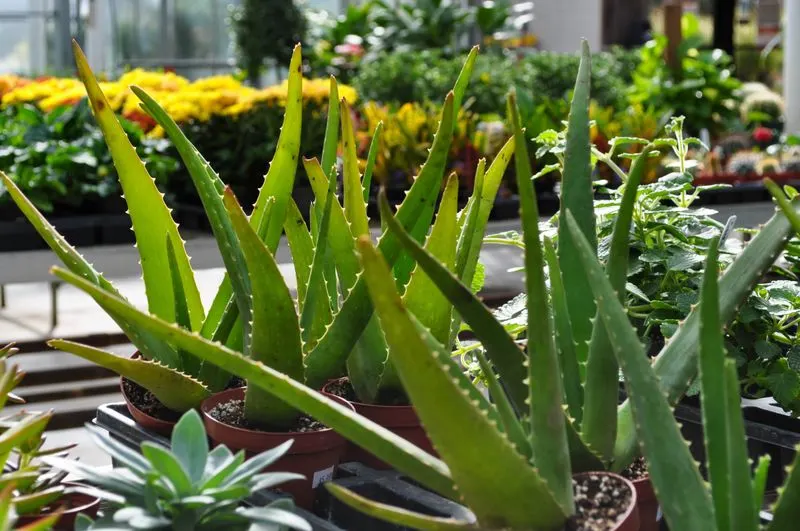
Aloe Vera is renowned for its healing properties, known to soothe burns and skin irritations. Its robust, succulent leaves offer a visual of resilience and self-care.
For widowed gardeners, Aloe Vera symbolizes the nurturing of the self. Its presence in the garden is a reminder to tend to one’s own needs and embrace the healing process.
The act of caring for Aloe Vera can be meditative, providing both physical and emotional relief. It stands as a testament to the power of nature in nurturing the soul and body alike.
Basil
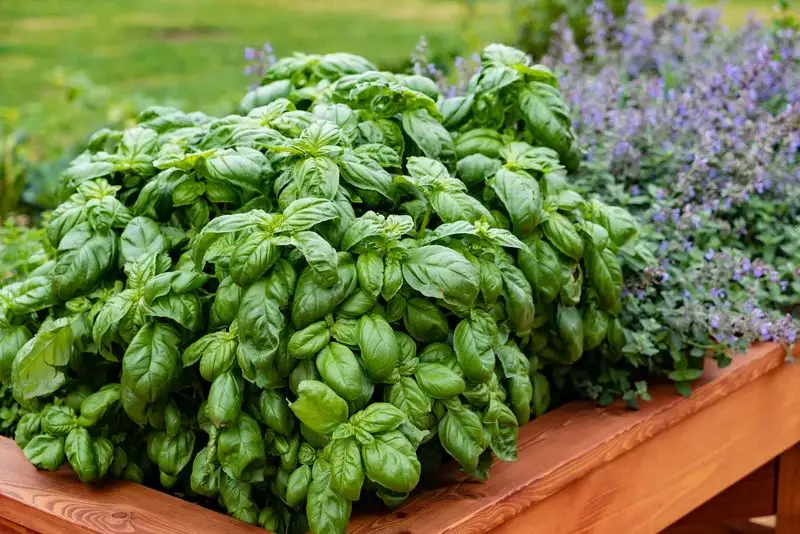
Basil’s aromatic leaves bring flavor and freshness to the garden, symbolizing love and protection. Its rich green color and delightful scent invigorate the senses and inspire culinary creativity.
Widowed gardeners may find solace in basil’s growth, a symbol of life’s continuous cycle. Planting basil can be a therapeutic act, nurturing both the garden and the spirit.
Whether in a pot or a garden bed, basil thrives with care, reminding us that love and growth go hand in hand. It’s a companion in the kitchen and a healer in the garden.
Lemon Balm
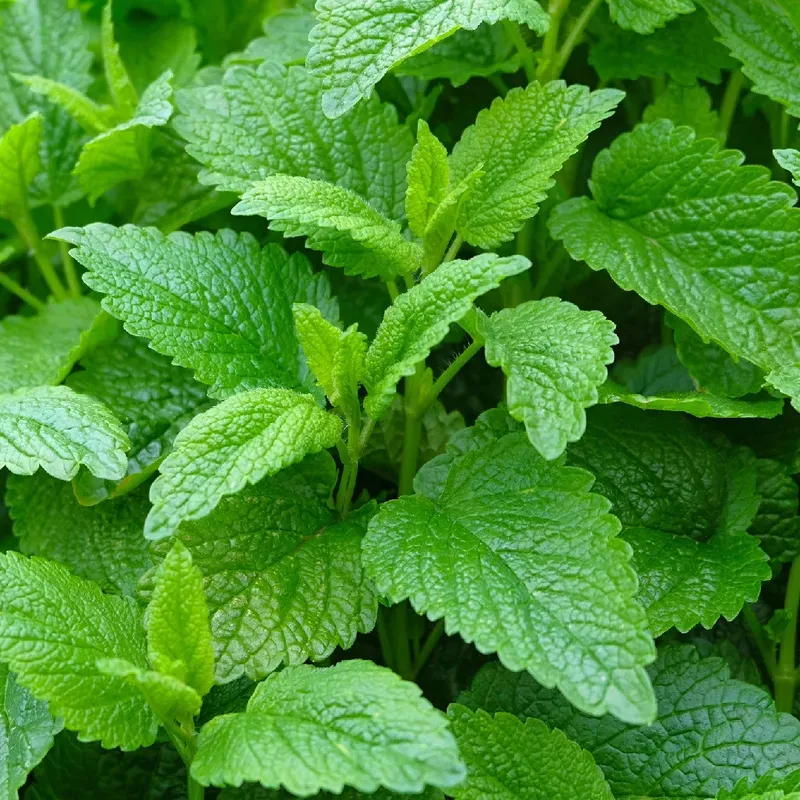
Lemon balm, often called the “elixir of life,” is celebrated for its uplifting properties. Its citrusy scent and vibrant foliage can elevate the mood and invigorate the spirit.
For widowed gardeners, lemon balm represents a fresh start, a new beginning infused with hope and positivity. Its presence in the garden encourages mindfulness and connection to the present moment.
Whether used in teas or as a fragrant addition to the garden, lemon balm offers both flavor and emotional support, nurturing the heart and soul with its cheerful essence.
Echinacea
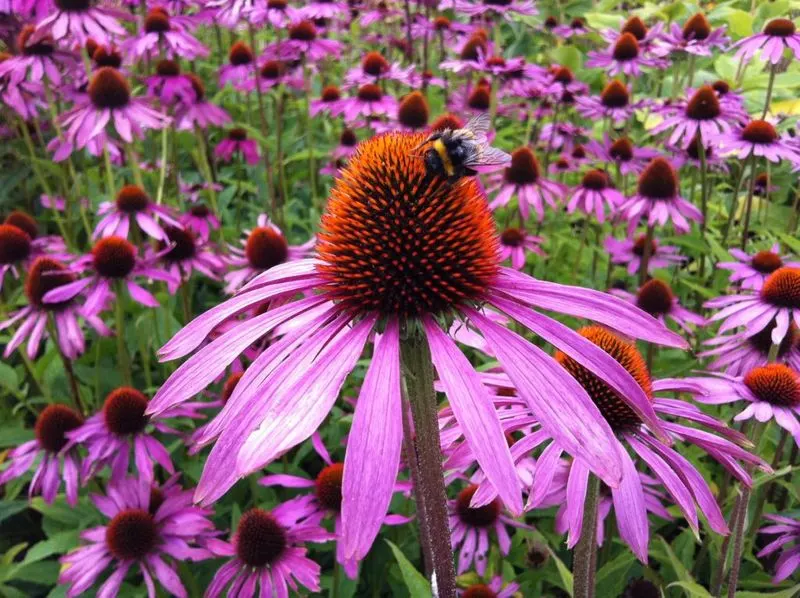
Echinacea, known for its immune-boosting qualities, is a beacon of strength and resilience. Its vibrant blooms attract pollinators, bringing life and energy to the garden.
Widowed gardeners may find inspiration in echinacea’s tenacity, a plant that thrives in diverse conditions and symbolizes hope. The act of tending to echinacea can be a metaphor for nurturing one’s inner strength.
With its striking appearance and healing properties, echinacea is a reminder that beauty and vitality can flourish even in challenging times, offering both physical and emotional renewal.
Thyme
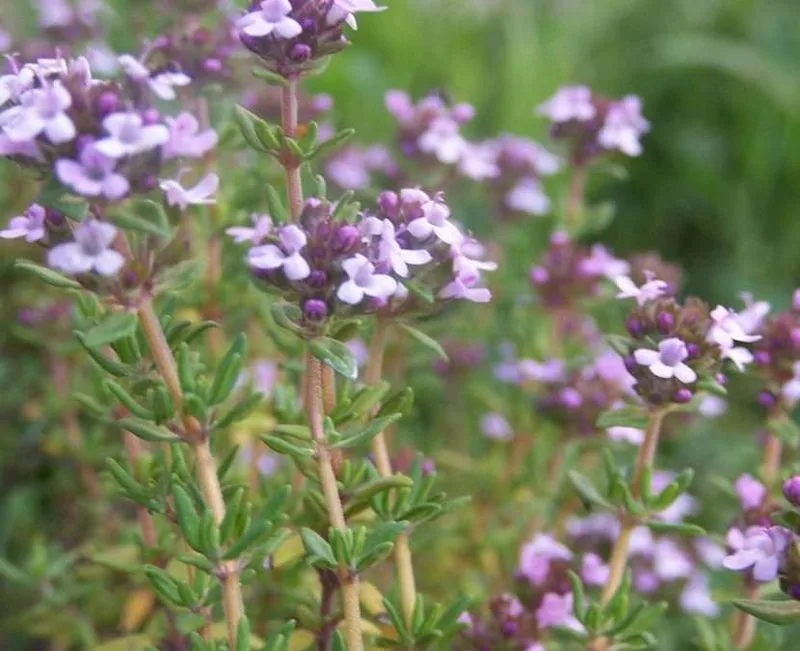
Thyme is a culinary favorite, known for its aromatic leaves and versatility. Its compact, green foliage is a symbol of courage and strength.
For widowed gardeners, thyme can represent resilience and the ability to adapt. Its presence in the garden is a source of flavor and inspiration, encouraging creativity and nurturing the spirit.
Thyme’s subtle beauty and rich aroma make it a cherished addition to any garden. It offers a sense of continuity and connection, reminding us of the healing power of nature and the joy of growing.
Calendula
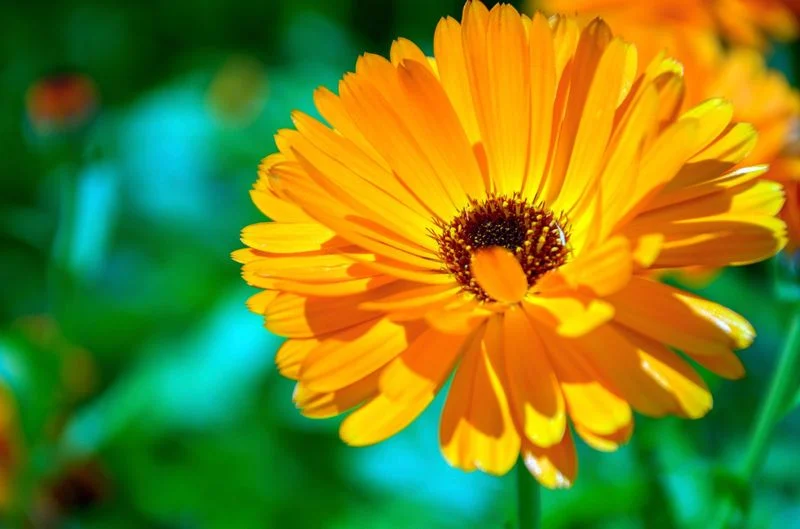
Calendula, with its sun-kissed blooms, is a symbol of warmth and healing. Known for its soothing properties, it is often used in herbal remedies and skincare.
Widowed gardeners may find comfort in calendula’s vibrant presence, a reminder of joy and renewal. Its bright flowers can lift the spirits and invigorate the garden with color.
Planting calendula is an act of nurturing, as it thrives with care and attention. Its cheerful disposition and healing nature offer solace and hope, creating a garden space that heals and inspires.
Peppermint
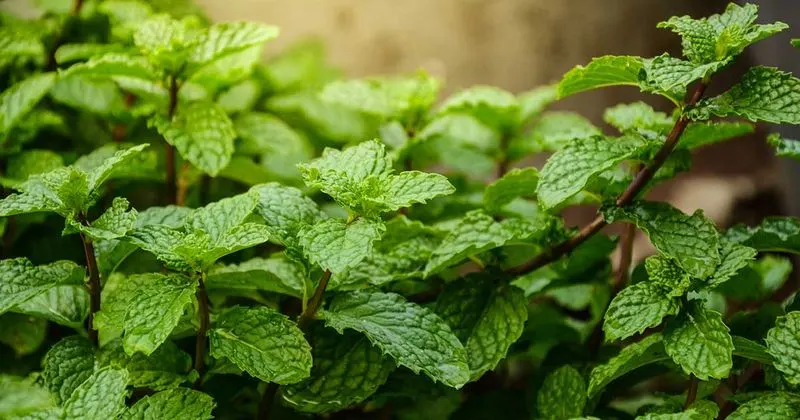
Peppermint’s invigorating aroma and taste bring a refreshing burst to the senses. Its lively green leaves symbolize vitality and rejuvenation, offering an uplifting presence.
For widowed gardeners, peppermint can be a source of renewal, a plant that invigorates both the garden and the spirit. Its robust growth and resilience mirror the strength found in embracing life’s changes.
In the kitchen, peppermint adds a zing to dishes and drinks, infusing life with flavor and joy. Its presence in the garden serves as a reminder of life’s refreshing possibilities and the healing power of nature.
Yarrow
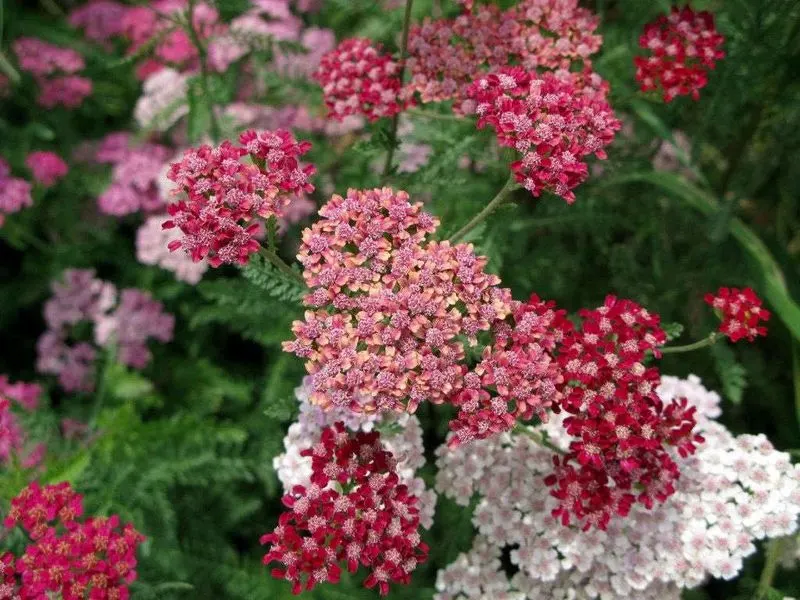
Yarrow, with its feathery leaves and clusters of small flowers, is a plant of resilience and healing. Traditionally used for its medicinal properties, it symbolizes strength and endurance.
Widowed gardeners may find inspiration in yarrow’s unyielding nature, a reminder of the strength that lies within. Its presence in the garden can be a source of comfort and reflection.
Yarrow’s subtle beauty and healing qualities make it a cherished addition to any garden. It serves as a testament to the enduring power of nature and the ability to find healing in its embrace.
Rose
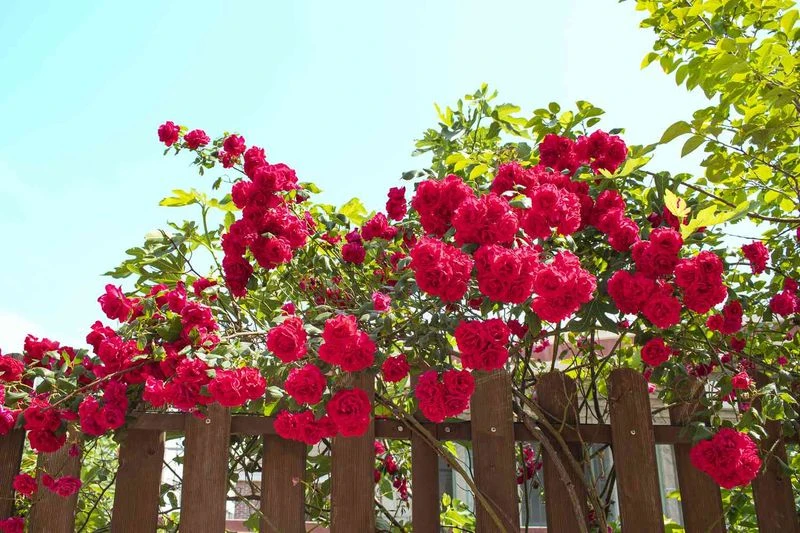
Roses are timeless symbols of love and beauty, their delicate petals evoking feelings of nostalgia and connection. Each bloom tells a story of enduring love and the beauty of life.
Widowed gardeners may find solace in tending to roses, a reflection of cherished memories and hope for the future. The act of nurturing roses can become a healing ritual, fostering growth and renewal.
Whether in bouquets or blooming in the garden, roses offer comfort and inspiration. They remind us of the power of love and the beauty of life, even amidst loss.
Jasmine
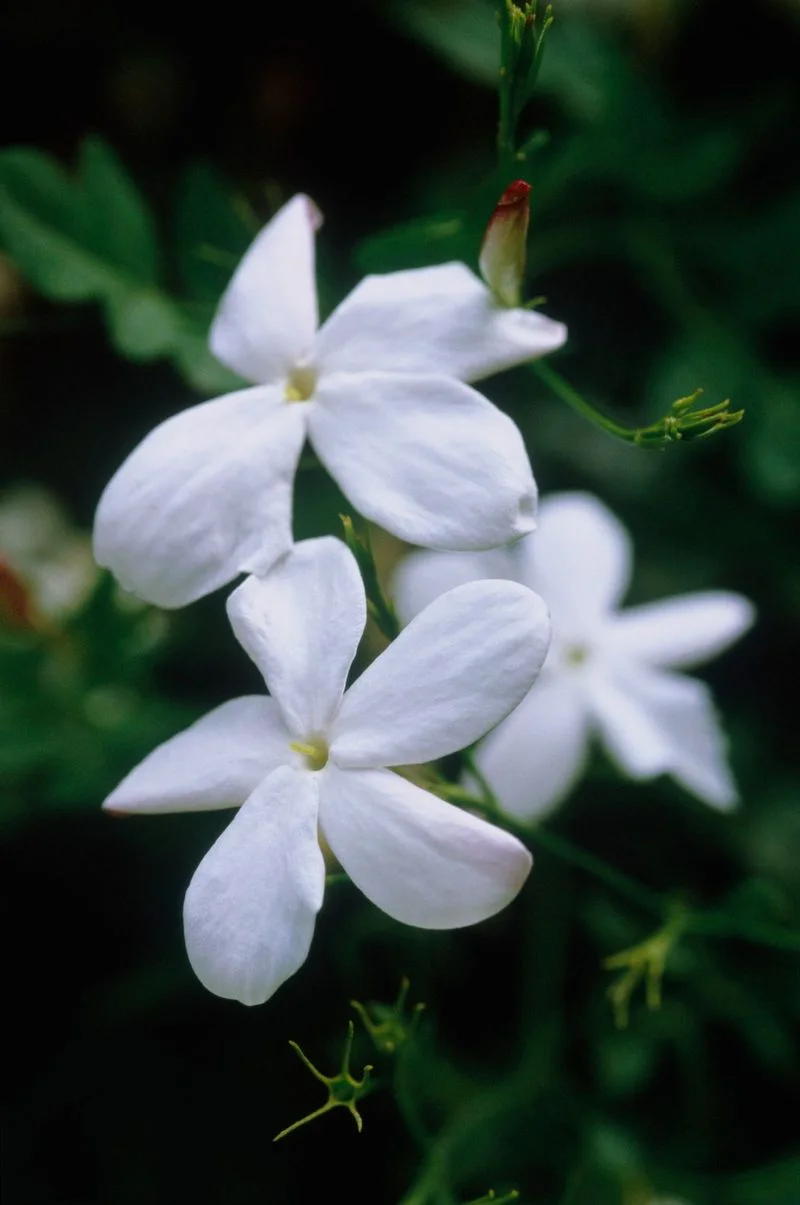
Jasmine’s intoxicating scent fills the night air with romance and mystery. Its delicate white flowers are symbols of purity and grace, enchanting those who encounter them.
For widowed gardeners, jasmine can be a source of comfort, a fragrant reminder of love and connection. Its presence in the garden transforms the space into a sanctuary of beauty and calm.
Jasmine’s elegant blooms and captivating aroma create a sense of wonder and tranquility. They offer solace and inspiration, inviting reflection and renewal in the quiet embrace of nature.
Sunflower
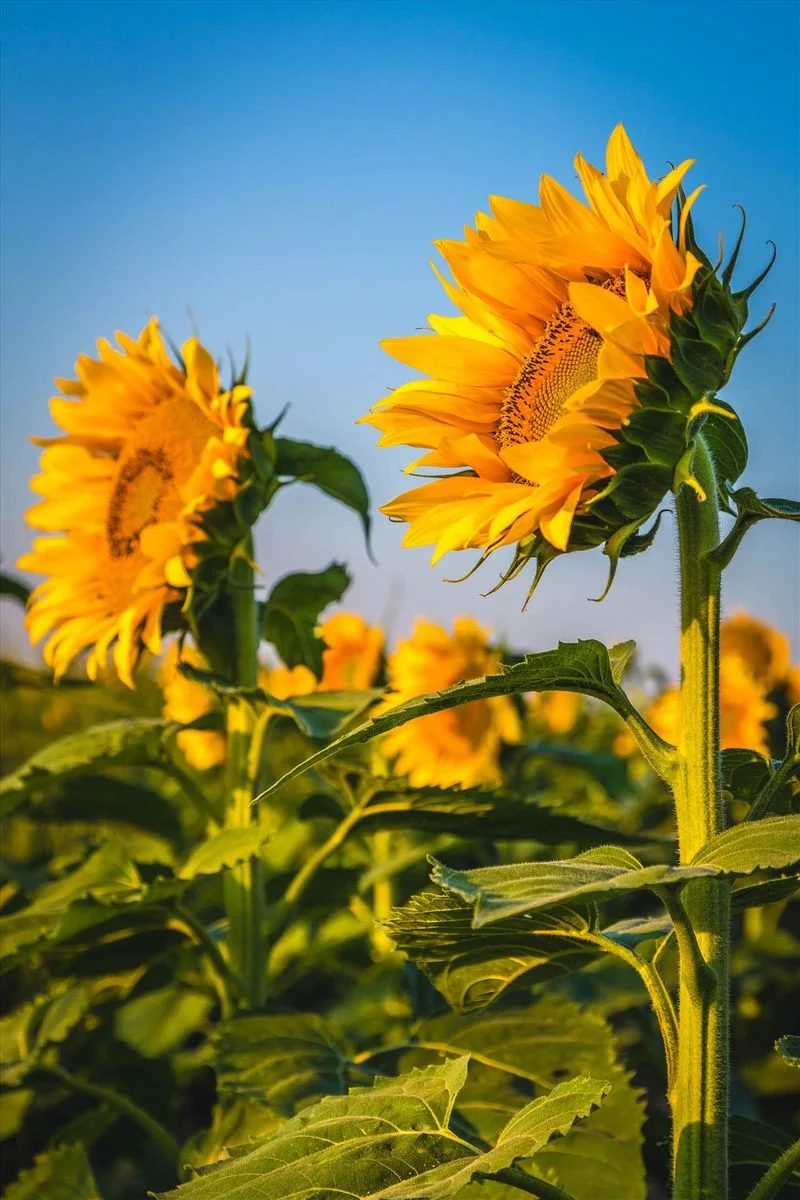
Sunflowers are symbols of positivity and resilience, their faces always turned towards the sun. Their towering presence and vibrant blooms bring warmth and joy to the garden.
For widowed gardeners, sunflowers can be a beacon of hope, a reminder that light and happiness are within reach. The act of planting sunflowers can be a joyful ritual, celebrating growth and life’s beauty.
Their radiant petals and sturdy stems speak of strength and optimism. Sunflowers inspire us to keep reaching for the sun, nurturing both the garden and the spirit with their cheerful presence.
Marigold
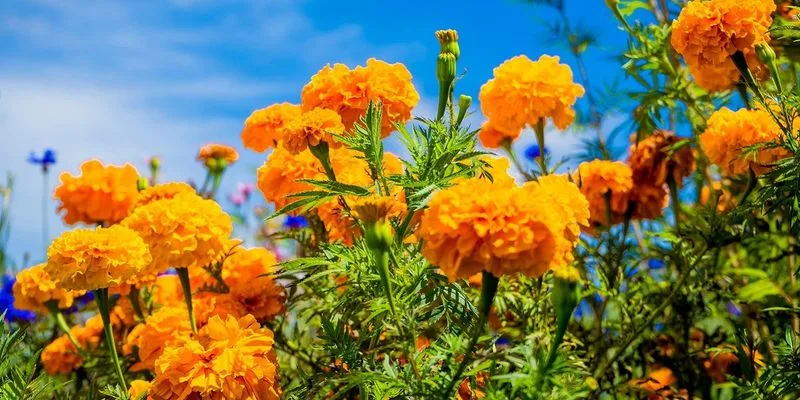
Marigolds, with their fiery blooms, are symbols of warmth and creativity. Their vibrant colors add a splash of joy to any garden, uplifting the spirit with their cheerful presence.
Widowed gardeners may find comfort in marigolds’ resilient nature, a plant that thrives under the sun and weather’s challenges. Planting marigolds can become a ritual of renewal, celebrating life’s vibrancy.
Their bold hues and sturdy nature remind us of the power of resilience and the beauty of growth. Marigolds inspire creativity and joy, nurturing the heart and soul with their radiant energy.
Forget-Me-Not
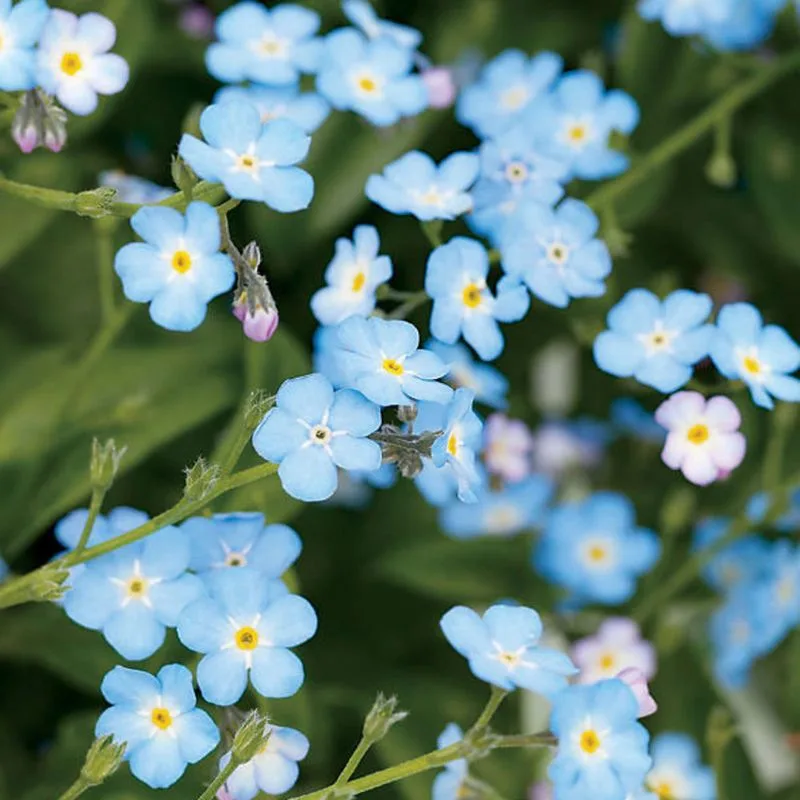
Forget-Me-Nots are tender symbols of remembrance and everlasting love. Their delicate blue blooms whisper of cherished memories and connections that endure.
For widowed gardeners, forget-me-nots can be a comforting presence, a reminder of love that transcends time. Planting them is an act of remembrance, honoring the past while embracing the future.
Their gentle beauty and poignant symbolism offer solace and hope. Forget-Me-Nots create a garden space that nurtures the heart, inviting reflection and healing in the gentle embrace of nature.
Borage
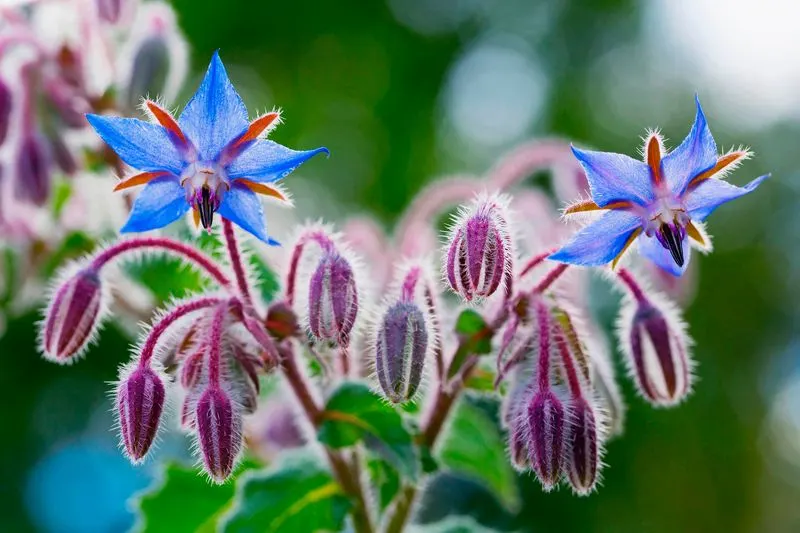
With its star-shaped azure blossoms, borage presents a striking addition to any garden. This plant is known for encouraging courage, perhaps stemming from ancient beliefs of its power to uplift spirits. Borage thrives in well-drained soil and full sunlight, requiring minimal care, which makes it perfect for those beginning anew.
Its leaves are not just visually appealing but also edible, adding a cucumber-like taste to salads. Historically, borage was used to brew tea believed to dispel melancholy. As it blooms, it invites bees, fostering a lively garden ecosystem. A plant with history, beauty, and resilience.
Nasturtium
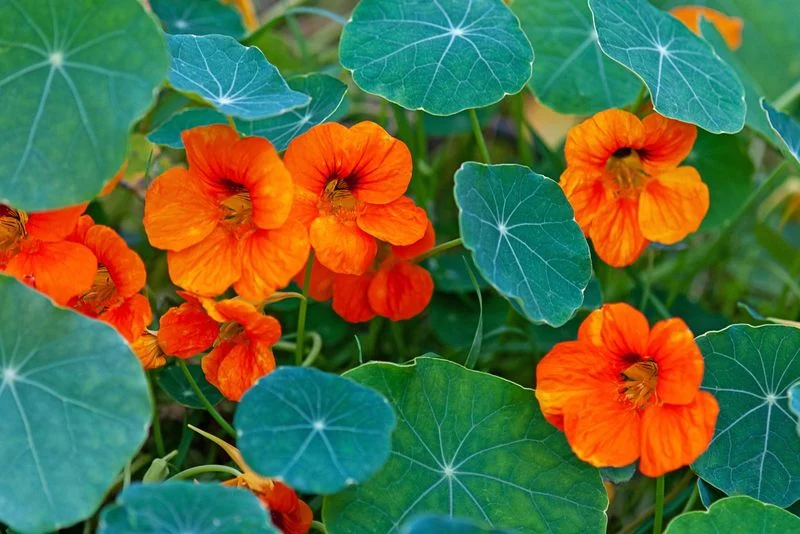
Nasturtium adds a splash of joy to any garden with its vivid blooms. These cheerful flowers thrive in poorer soils, making them ideal for gardeners who might not have the time for constant upkeep.
Beyond their beauty, nasturtiums are edible and can spice up salads with a peppery taste. Their easygoing nature allows them to flourish without much fuss, symbolizing resilience and simplicity.
Historically, nasturtiums have been used in herbal remedies, believed to boost the immune system. Their carefree growth and bright demeanor can lift spirits, offering a sense of accomplishment to new gardeners.
Hibiscus
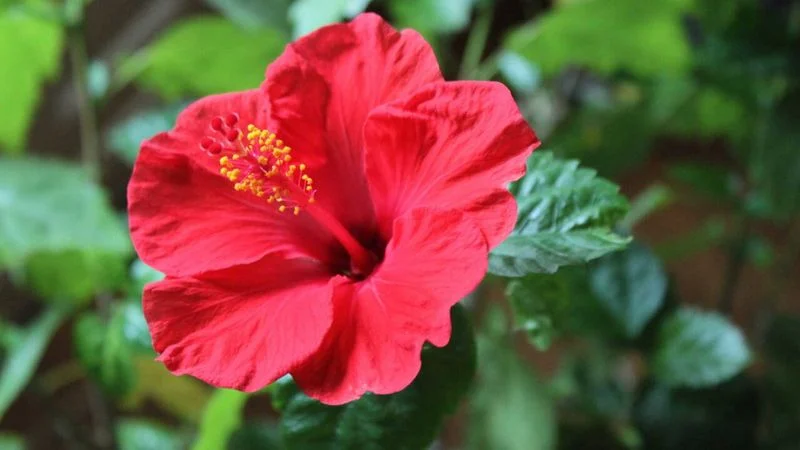
The hibiscus stands out with its large, showy blossoms that can transform any space into a tropical oasis. Known for its beauty and vibrance, hibiscus is also revered for its health benefits.
This plant has been used to make a refreshing tea that is known to support heart health and lower blood pressure. Its striking colors and soothing presence can provide comfort and a sense of tropical escape.
Hibiscus requires a bit more care, but its rewards are plentiful. The joy of watching these blooms grow can be a healing experience, connecting the gardener to a sense of purpose.
Feverfew
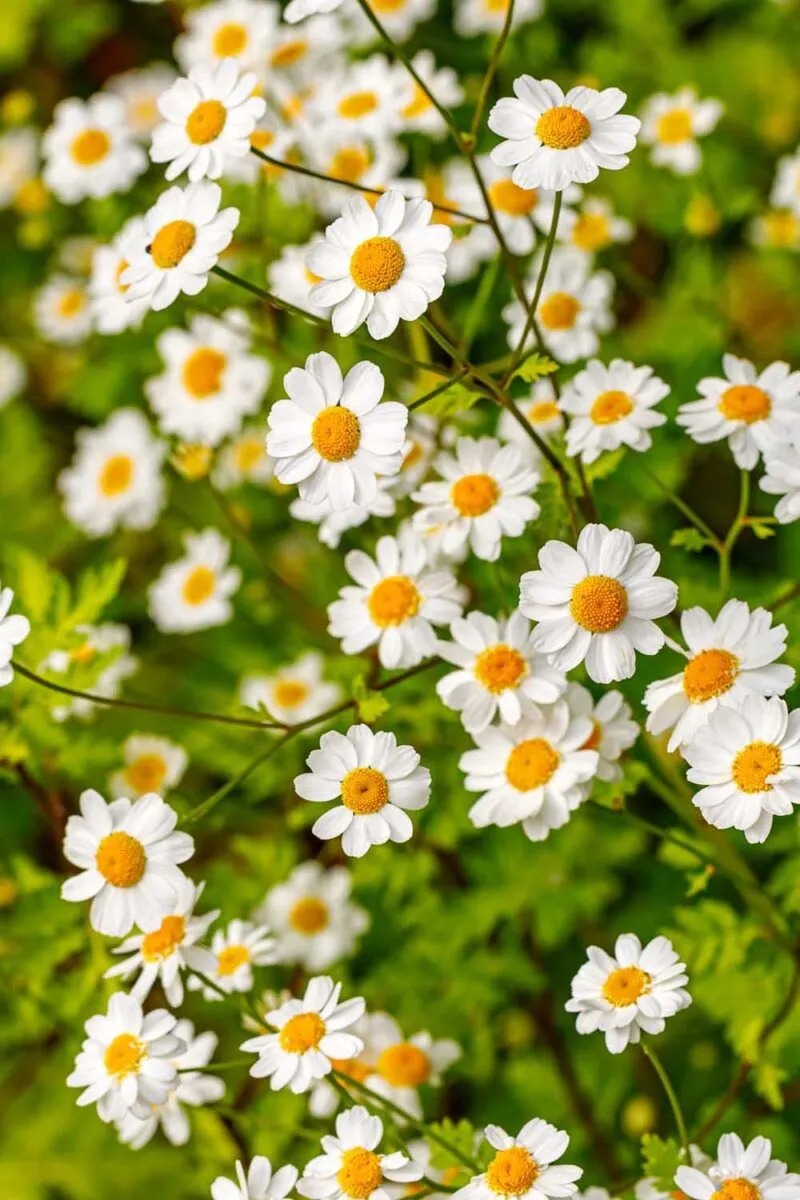
Feverfew, with its delicate daisy-like flowers, has been cherished for its medicinal properties. Known historically as a remedy for migraines and headaches, this plant brings both beauty and utility to the garden.
Its bright, cheerful blooms can lighten up any garden space, providing a sense of calm and tranquility. Feverfew is relatively easy to care for, requiring minimal maintenance.
The plant symbolizes healing and care, making it a perfect companion for those seeking solace. Its gentle presence and historical significance can offer comfort to those embarking on a new chapter in life.

